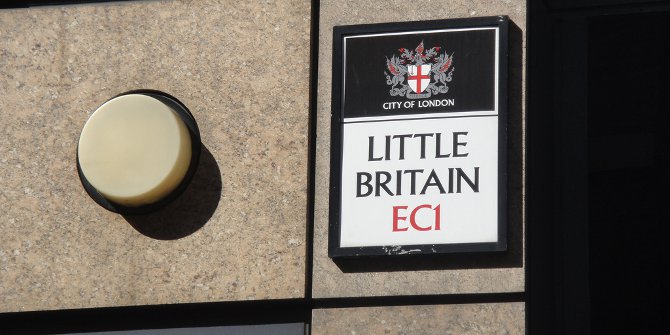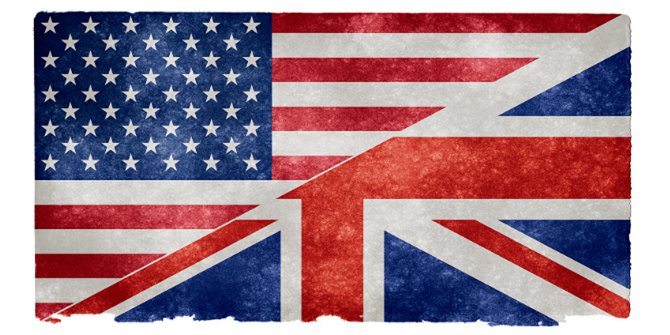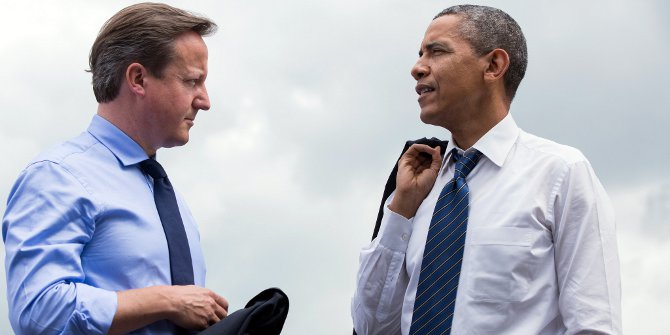 Britain’s election is being watched closely in both the USA and Europe because of fears a once leading player in the Atlantic alliance has taken a back-seat in international affairs. Tim Oliver argues that while Britain is not about to disappear, it will play a more cautious role in the world, something that could be a strength rather than a weakness.
Britain’s election is being watched closely in both the USA and Europe because of fears a once leading player in the Atlantic alliance has taken a back-seat in international affairs. Tim Oliver argues that while Britain is not about to disappear, it will play a more cautious role in the world, something that could be a strength rather than a weakness.
International coverage of Britain’s general election has dwelt largely on how Britain seems to be turning inwards, consumed by an existential crisis about its unity and future and filled with growing doubts about its place in Europe and attitudes to the wider world. Britain no longer seems quite so easy with the idea of ‘punching above its weight’. The country that threw open its doors to the world at the 2012 Olympics seems to be fast disappearing. Some worry the USA’s closest ally, leading member of the EU and NATO, and a permanent member of the UN Security Council is turning into a ‘Switzerland with nukes’.
There is little doubt Britain is passing through a period of unprecedented political change. Doubts about Scotland’s place in the union have grown not receded since last year’s independence referendum. English nationalism is on the rise, fuelled in part by London’s continued growth as an international city that is increasingly foreign to most Britons but which dominates their lives and government. The economy might be growing again, but inequality across Britain and between its different parts has also been growing. The UK state appears either unwilling or unable to do much to change this. Many assume Northern Ireland is peaceful when the peace process remains fragile. Where once the UK’s electoral system produced single party governments, it now produces hung parliaments that lead to coalition or minority government. The traditional political parties seem unable to respond, caught unawares by smaller parties promising greater and more radical change.
The knock-on effect is a Britain that appears to be drifting into ignominy internationally, one either too distracted internally to deal with the world or when it does seems unsure, sometimes hostile, to it. In Europe, Britain’s behaviour has seen it move from being an awkward but engaging partner to a destructive one, going so far as to contemplate exiting the EU altogether. Over Ukraine, Britain has made at most symbolic and token gestures leaving an impression it cares less about European geopolitics than it does about Russian oligarchs living in London. Cuts in defence spending will push Britain under the 2 percent NATO guideline, leaving few elsewhere in Europe in any mood to listen to Britain on defence. That Britain might give up its nuclear weapons leads some to question whether it can retain its seat on the UN Security Council. Relations with the USA no longer carry the warmth of previous eras, with the House of Commons vote to reject military action over Syria taken by some as the end of the ‘special relationship’. The decision by Britain to join the Asian Infrastructure Investment Bank was an added betrayal.
While unease elsewhere in Europe and in Washington D.C. at Britain’s apparent drift is understandable, we should be careful not to get carried away with ideas Britain is destined to become an absent partner in Europe, give up on the transatlantic relationship or withdraw from the wider world. In Europe Britain has long been an awkward partner. David Cameron’s failure to build relations has certainly left Britain more isolated than it has in the past and an in-out referendum will plunge both the UK and EU into uncharted, potentially destructive territory. But some polling shows the British are not as keen on leaving as might appear from listening to Britain’s political debate. Cameron’s own arguments with Europe – over appointments such as that of Jean Claude Junker as President of the European Commission and policies connected to growth and trade – do find common cause elsewhere. A British government that took a less antagonistic approach (hardly a difficult task) would immediately find itself in a more leading position. Even a British exit has to be set against trends in Europe’s development. By mid-century Britain could have a population larger than that of Germany.

On defence the very idea of NATO’s 2 percent defence spending guide is so widely disregarded that Britain dropping below it merely reinforces the growing need to review the idea. The coalition government took the decision that defence spending took second place to cutting the UK’s debt, a decision intended to strengthen the one pillar on which the defence of the realm ultimately rests: the economy. The transatlantic relationship has always been defined by more than the military adventurism of its leaders. Atlanticism, whether in defence, wider foreign affairs or political economy, remains deeply embedded in Britain’s worldview. If Ed Miliband becomes prime minister Britain will be led by a man who spent several years of his youth in the USA and who later returned to teach economics at Harvard. Britain continues to think a lot about the English-speaking world, even if this tends more towards the older and largely white parts. The USA, Australia, New Zealand and Canada alone are home to 2.8 million Britons, which matches – and perhaps exceeds – the number of Britons living elsewhere in the EU. Diasporas from and in Asia and Africa are alive and growing. The vote on Syria did reflect political and pubic weariness at yet another military intervention, but it was also the product of government incompetence at managing its MPs. If Britain needs nuclear weapons to stay on the Security Council then that sets a worrying precedent for the UN that rules out permanent membership for aspirant members such as Japan and Brazil. The decision to join the Asian Infrastructure Investment Bank was one many other US allies did not hold back from following.
Of course, this can all read like I’m waving a Union Jack while singing Rule Britannia in the hope of convincing myself as much as you that all appears fine. This election is undeniably highlighting a decline in British power and the way it is managed. It is not, however, a change we should shy away from. British governments can no longer take the public or parliament for granted in foreign affairs and that is a good thing for Britain and its allies.
Whether it is Britain’s place in Europe or defence spending, the time when the public could be treated as bystanders is gone. The idea of an in-out referendum on Britain’s membership of the EU (an idea which is unlikely to go away during a Labour government) reflects a need to deal with the long running failure in British politics to engage the British people in discussions about Europe. While a referendum won’t settle the issue, it could allow a more open debate on the topic. On defence the British have rallied to the colours on interventions when they have understood the need. Britain’s military have performed best when given clear government and public backing that provides them with the resources and direction they need. Today the gap between decision makers and the military’s understandings of international risks and threats has grown too far apart from the public’s own understandings. Narrowing that gap will require British government to pay more attention to people outside of London – whether in Scotland or elsewhere in England. That would be a welcome balance to the small international think tank and diplomatic community that make the metropolis (or at least its centre) their home and who so often dominate foreign policy discussions.
This all begs the question of whether British government is capable of adapting, listening and accommodating. A great deal will come down to whether the Conservatives and Labour parties – who between them will still hold the vast majority of seats in the House of Commons – can cooperate and reach out beyond themselves. As the FT’s Philip Stephens pointed out, we should not think of coalition or minority governments as incapable of affecting big changes or finding ways forward. Britain built its empire and won two world wars during periods when coalition and minority government was common. Such governments are the norm in the rest of Europe and in many democracies around the world. Britain’s allies on either side of the Atlantic should support Britain’s transition by not expecting Britain to go beyond what its public is willing to support. The alternative would add to pressure guaranteed to create gridlock in a government trying to overreach itself and Britain’s power. Therein lies the real threat of a dysfunctional Britain adrift in the world and breaking up.
Please read our comments policy before commenting.
Note: This article gives the views of the author, and not the position of USApp– American Politics and Policy, nor of the London School of Economics.
Shortened URL for this post: http://bit.ly/1GOEm3V
_________________________________
 Tim Oliver – LSE IDEAS
Tim Oliver – LSE IDEAS
Tim Oliver is a Dahrendorf Fellow for Europe-North American relations based a LSE IDEAS and a Non-Resident Fellow at the SAIS Center for Transatlantic Relations. He has also worked at RAND, the Stiftung Wissenschaft und Politik, the Royal Military Academy Sandhurst, LSE, UCL, the House of Lords and the European Parliament.





